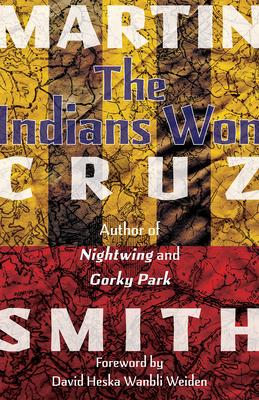First published in 1970 and long out of print, The Indians Won is a stunning work of speculative fiction that imagines that, following the defeat of Custer and Benteen at the Little Bighorn in 1876, the many Indigenous tribes of America formed an alliance to sweep the whites out of the center of the country and form a new nation, bounded on both coasts by the United States. One hundred years later the two nations, having taken very different paths toward stewardship of the land and resources, are on the brink of war again, as the five hundred million wasichu of the United States eye the vast, open center of the continent, just as they had prior to their explusion in the nineteenth century. The difference is, now they are both nuclear powers.
Imaginative, enthralling, rich in historical detail, and written from the perspective of a Native American writer, The Indians Won is an emotionally charged novel that asks the question: What if the Indians had won?

First published in 1970 and long out of print, The Indians Won is a stunning work of speculative fiction that imagines that, following the defeat of Custer and Benteen at the Little Bighorn in 1876, the many Indigenous tribes of America formed an alliance to sweep the whites out of the center of the country and form a new nation, bounded on both coasts by the United States. One hundred years later the two nations, having taken very different paths toward stewardship of the land and resources, are on the brink of war again, as the five hundred million wasichu of the United States eye the vast, open center of the continent, just as they had prior to their explusion in the nineteenth century. The difference is, now they are both nuclear powers.
Imaginative, enthralling, rich in historical detail, and written from the perspective of a Native American writer, The Indians Won is an emotionally charged novel that asks the question: What if the Indians had won?